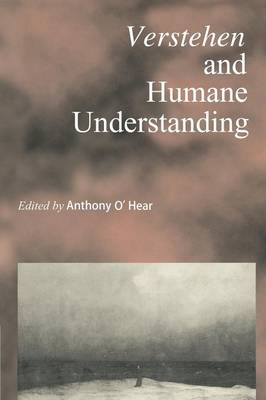Royal Institute of Philosophy Supplements
3 total works
This collection brings together the primary assessments of and reactions to the work and abiding influence of this revolutionary thinker, as well as the controversy he caused across many academic and political fields. The set includes early responses to Popper's work from sources difficult to obtain, and also two early reviews (by Carnap and Grelling) in translations specially prepared for this set. It is organized thematically, and includes a substantial new introduction by the editor.
This 1997 collection of essays addresses topics that are of crucial importance to the lives of us all. Is there a mode of thinking peculiar to human life and its concerns, which is different from and irreducible to scientific rationality? Is historical understanding different from scientific understanding? Do psychology, religion and aesthetics have their own forms of rationality? Can you be rational about human life without being scientific? The contributors address these and related questions, some focusing on the history of the development of the notion of Verstehen, others examining particular areas of discourse and practice.
What is the mind? How does it relate to the body and the world? What is consciousness? What is experience? How free are we? Do we have special insights into ourselves? These perennial questions are at the forefront of the philosophical concerns today. Much of the most exciting and innovative work in philosophy at the present time is being done in the philosophy of mind. The best of this work is represented in this collection, based on the Royal Institute of Philosophy's annual lecture series for 1996/7. It brings together leading figures in the area from Britain and the US, who lay out their thoughts on key issues in an accessible way. The book will be of great interest both to those working in the field and to those keen to discover just where philosophy and the philosophy of mind is moving at the end of the twentieth century.

